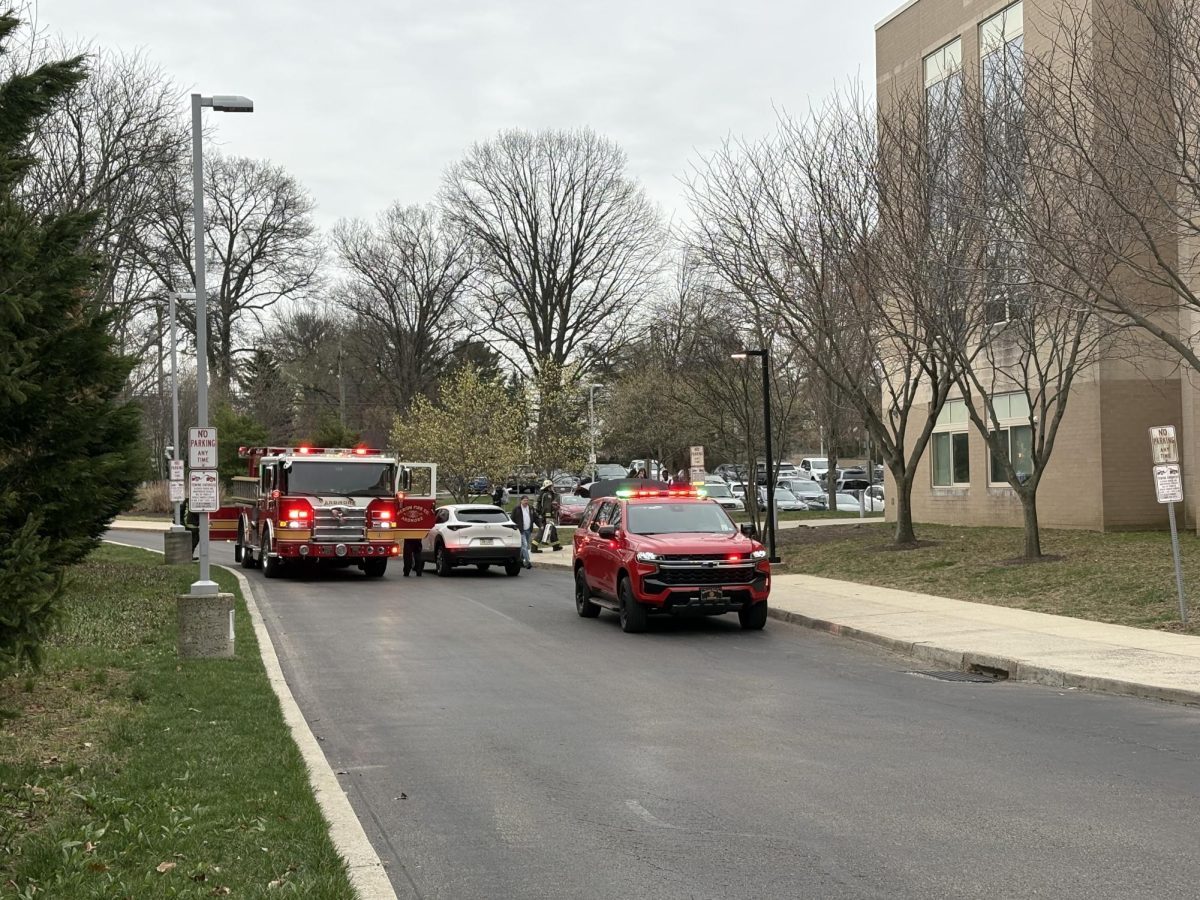Controversy erupted after a September 6 School Board policy committee meeting where members made what some community members viewed as racist and antisemitic statements during a discussion of LMSD’s Diversity, Equity, and Inclusion (DEI) policy. Board member Abigail Leher Rubin objected to the policy’s goal of benefiting marginalized groups, while her fellow Board member Kimberly Garrison discussed Jewish identity and said that Jews were racially white, statements that prompted backlash from the community and board-wide discussions on race, equity, and the nature of DEI policies.
The Board’s September 6 policy committee meeting had originally been centered on making minor edits to the district’s DEI policy, to ensure the district was complying with recent changes to federal law in the wake of a recent Supreme Court case surrounding affirmative action. However, the conversation ramped up when Rubin questioned how LMSD defines how an equity policy should benefit. “One of the questions I keep coming back to is how do we determine the need?” Rubin said, inviting in a broader conversation on what DEI work the district is doing and how it should allocate funding and resources. Specifically, Rubin objected to language that said the policy was targeted towards benefiting “those historically marginalized,” saying that, “I would like it to say all.” As the conversation continued to get heated, Rubin remained opposed to the policy, saying that “There are specific classes that are identified here that are clear, and those groups will get certain treatment…it just feels discriminatory and exclusionary.” To Rubin, prioritizing those historically marginalized would make the policy outdated if political situations shifted in the future.
Kimberly Garrison, who called in from Zoom, objected to Rubin’s perspective by sharing that “racism and anti-Blackness have always been in fashion. It has never gone away…the Black students, many of them at Lower Merion, are not getting the same experiences as many of the White students.” Garrison also highlighted that, in her perspective, LMSD has not appropriately wrestled with anti-Blackness within the district, adding that, “It is not an accident that the gifted program has consistently had low representation of Black students.”
Board member Anna Shurak defended the policy’s specific language by speaking from her personal experience, saying that while she experienced antisemitism while she was growing up, “experiencing antisemitism did not preclude me, as a White person in my school context, [from] having the same opportunities and educational outcomes in the same way it may have if I was a different race or if I had a disability.” Shurak used this example to illustrate how the equity policy (which aims specifically to address opportunity gaps, or gaps in academic performance, like standardized test results, or frequency of disciplinary action against members of certain groups), is different from other belonging or anti-bullying policies that are aimed at the student body more broadly.
As the Board continued to discuss the DEI policy, Garrison added on to the discussion of antisemitism, saying that “I know quite a bit about Jewish history as well, and there was a time before Jewish people decided that they were going to join the group of White people, like all the other ethnic groups.” Rubin cut in and asked Garrison to “take that statement back, that’s not really true.” Garrison replied, saying that “it is really true, because 99 percent of people who are Jewish ancestry say they are White in the United States…The Irish at one point were considered an ‘other,’ the Italians also, but eventually everyone who was of western European descent” had assimilated into Whiteness.
These comments elicited noticeable responses from various community members gathered in the audience. When the Board yielded to public comment, several people rushed to speak. Residents questioned how “historical marginalization” was
defined, and objected to the fact that, while religion is listed as an example of a reason students could face marginalization, ethnoreligion is not. Various members of the community also opposed the DEI policy in general, such as Esther Schwartzman, who asked “Why is DEI in our schools? It is a racist, antisemitic failed policy…Students should not be indoctrinated by divisive political ideology.” Primarily, the community responded to the events of the meeting, and to Garrison’s comments specifically, with one speaker saying “I am astonished if that was a Board member speaking…making a comment about Jewish people choosing Whiteness as if that would be an acceptable thing to say in public.” After community members took offense during public comment, Garrison clarified that, “I realize that there are also Sephardic Jewish people, Ethiopian Jewish people.” But Garrison backed up her assertion about the Jewish Whiteness. “In this country, that’s how the majority of Jewish people are classified,” she reported, quoting from the Pew Research Center.
The backlash to these discussions was notable enough to warrant a district-wide email to parents and guardians, sent out on Friday, September 13, by Board president Kerry Sautner. Sautner also began the September 16 School Board meeting by apologizing to the audience and the district as a whole “for the lack of leadership” present at the prior policy committee meeting. Saunter announced that they would be “scheduling Board training on antisemitism and racism, and looking into community conversations on these topics” both to be run by experts from outside LMSD. “I want to thank you for holding us accountable and for your patience in helping us improve,”said Saunter. Despite the turmoil of the September 6 meeting, Shurak announced that the Board would move ahead with voting on the proposed changes to the policy, which were relatively minor but necessary to ensure the policy is compliant with recent changes in federal law.
Later, Garrison addressed the most controversial moments of the meeting head on. She fought for her previous statements, saying, “I am not antisemitic. Anna Shurak and I both made objective statements regarding the demographics of the Jewish population in the United States.” Garrison went on to quote the US census and other sources to back up her earlier statements. “Labeling me as antisemitic is not only untrue, but is also defamatory. In this political climate, and especially as a Black woman, to call me such is to weaponize the term in order to stop any authentic and constructive dialogue and to intimidate me to silence.”
Garrison then cited examples of what she feels is intimidation: instances of residents harassing her and her family members over social media, “even posting photographs of my husband and I that go back more than twenty years.” She continued that Shurak “has not received any such backlash from that initial meeting. This is classic anti-Blackness and racism in action. It is a campaign of intimidation.”
As the Board meeting on September 16 came to a close, the Board yielded again to public comment, which lasted for over an hour. Many spoke in favor of the DEI policy and supported its aim of benefitting historically marginalized groups. Others voiced their concerns about antisemitism in the district, and specific disapproval of Garrison’s statements about Jewish identity and unwillingness to retract her statements about Jewish demographics. Overall, the controversy seems to have reignited discussion within the district about racial equity, antisemitism, and the role and purpose of DEI initiatives.







